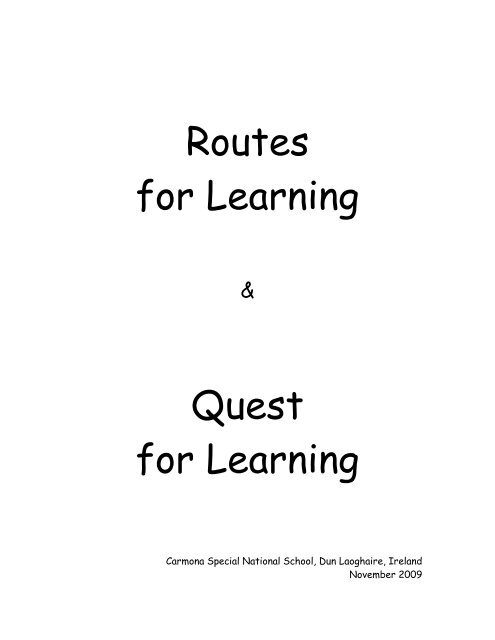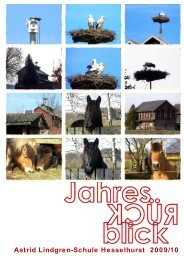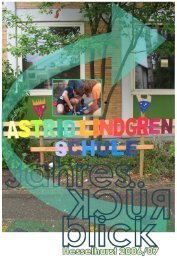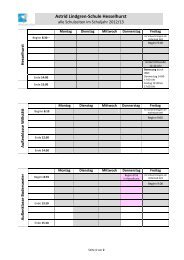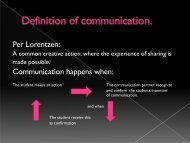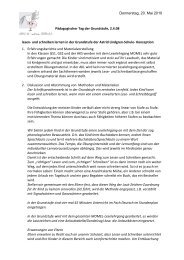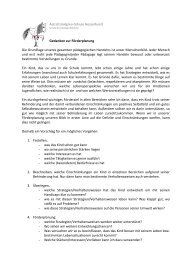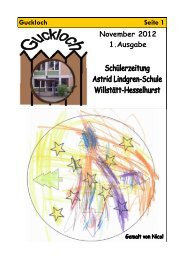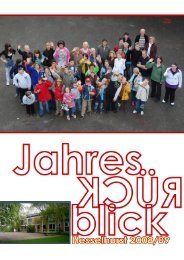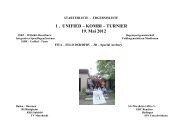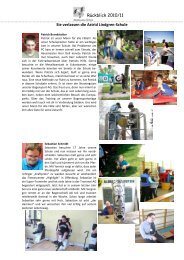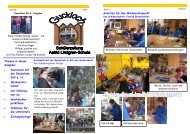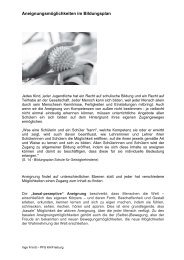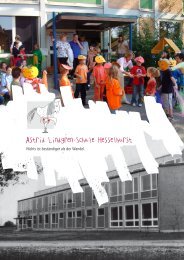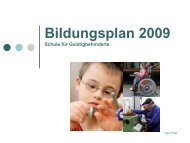Routes for Learning (First published 2006)
Routes for Learning (First published 2006)
Routes for Learning (First published 2006)
You also want an ePaper? Increase the reach of your titles
YUMPU automatically turns print PDFs into web optimized ePapers that Google loves.
<strong>Routes</strong><br />
<strong>for</strong> <strong>Learning</strong><br />
&<br />
Quest<br />
<strong>for</strong> <strong>Learning</strong><br />
Carmona Special National School, Dun Laoghaire, Ireland<br />
November 2009
Children with Profound learning disabilities all have, in<br />
addition, a complex range of other physical, motor,<br />
sensory, behavioural or medical difficulties .<br />
Conventional planning and assessment materials have<br />
always assumed that all children will follow a “normal”<br />
pattern of development; these materials tend to follow<br />
linear, box-ticking <strong>for</strong>mats.<br />
Teachers working with PMLD children have historically<br />
felt intuitively that the existing curricula, with their<br />
product-based, behaviourist approaches were inadequate<br />
<strong>for</strong> these children; what they need is process-based,<br />
interactive approaches.<br />
In other words, children with PMLD need a holistic,<br />
flexible approach. We must not try to fit them into a<br />
“one-size-fits-all” framework.<br />
We shouldn’t be teaching sequential steps, controlled by<br />
the teacher, but rather focusing on broader attainment<br />
that is not necessarily easy to measure or record.
<strong>Routes</strong> <strong>for</strong> <strong>Learning</strong> was developed between 2001 and<br />
<strong>2006</strong> to assess the early communication and cognitive<br />
skills that are crucial to all future learning and improved<br />
quality of life.<br />
It is an assessment <strong>for</strong> learning and an assessment of<br />
learning. The focus is on the pupil and his/her abilities<br />
rather than disabilities, and allows <strong>for</strong> measurement of<br />
the often very subtle steps in their development and<br />
progress.<br />
It is process-based and looks at the relationship between<br />
the pupil and his/her environment.<br />
The Routemap identifies key milestones of early cognitive<br />
development, communication and social interaction.<br />
These are:<br />
• noticing stimuli<br />
• responding consistently to a stimulus<br />
• contingency responding<br />
• contingency awareness<br />
• object permanence<br />
• selecting from two or more items<br />
• initiating actions to achieve desired results<br />
(exerting autonomy in a variety of contexts)
The routes that individual children will take to go<br />
through these milestones may vary according to<br />
their physical, sensory and intellectual needs.<br />
The “<strong>Routes</strong> <strong>for</strong> <strong>Learning</strong> Assessment Booklet” takes<br />
each milestone and gives practical suggestions about:<br />
• setting up suitable assessment activities<br />
• signs to look <strong>for</strong> during the activities<br />
• teaching strategies to move the child on<br />
The “Additional Guidance” book gives an excellent overview<br />
of the principles behind the Routemap and discusses<br />
the various approaches and processes involved. It also<br />
has useful appendices.<br />
A DVD shows illustrations of all the behaviours on the<br />
Routemap.<br />
PROBLEM:<br />
All this excellent material is no longer<br />
available!!!
QUEST FOR LEARNING<br />
http://www.nicurriculum.org.uk/inclusion_and_SEN/SEN/pmld.asp<br />
The Northern Ireland Council <strong>for</strong> Curriculum,<br />
Examinations and Assessment bought the rights to<br />
<strong>Routes</strong> <strong>for</strong> <strong>Learning</strong> in 2007. They made some<br />
adaptations to it, and re-named it “Quest <strong>for</strong> <strong>Learning</strong>”<br />
“Quest” follows exactly the same principles and methods<br />
as “<strong>Routes</strong>”. It also has more detailed guidance,<br />
assessment and monitoring materials.<br />
The Quest <strong>for</strong> <strong>Learning</strong> materials are currently being reprinted,<br />
and can be found on the above website. When<br />
the new copies are available, the NICCEA will send them<br />
directly to each Comenius Partner school.


